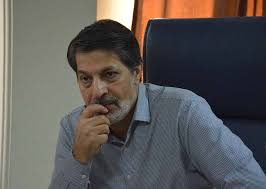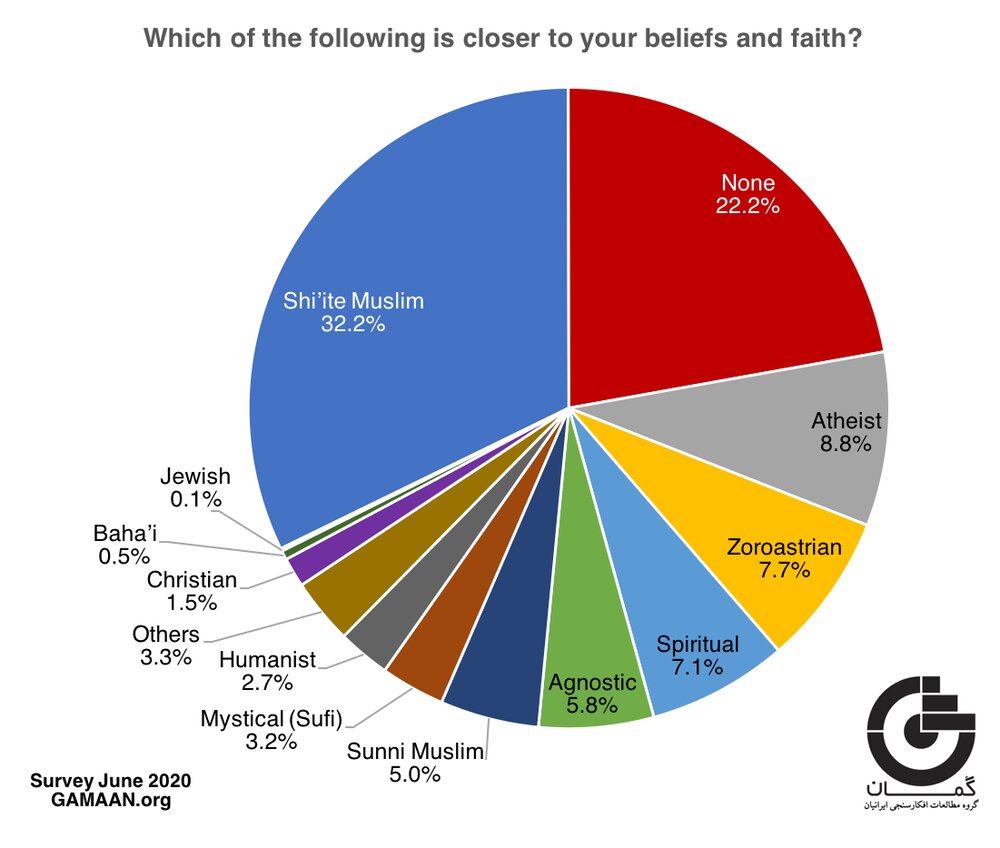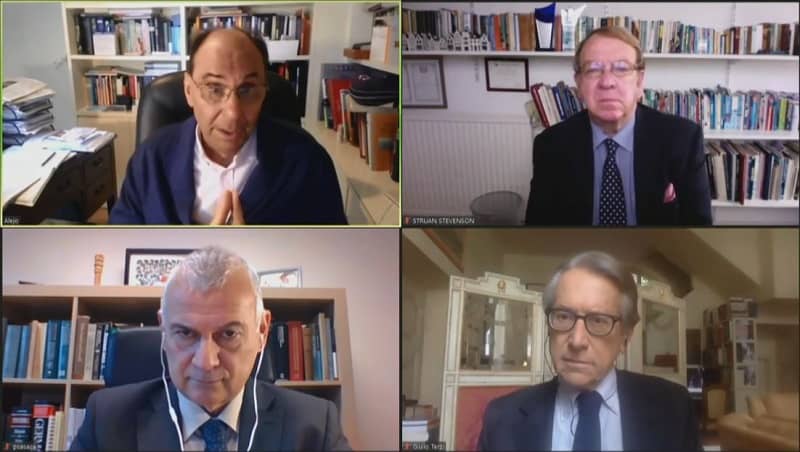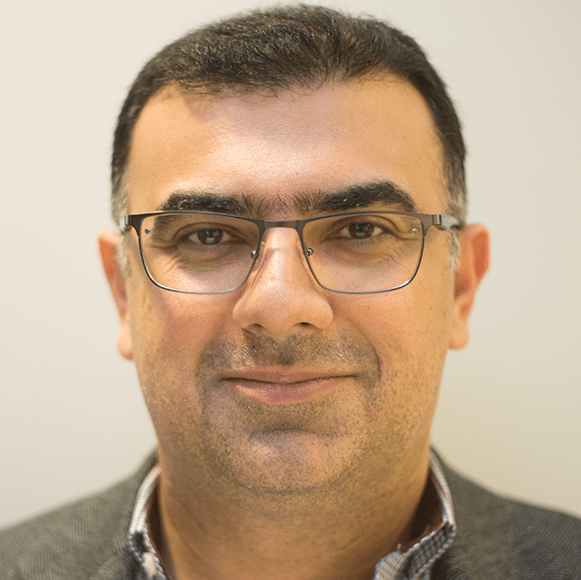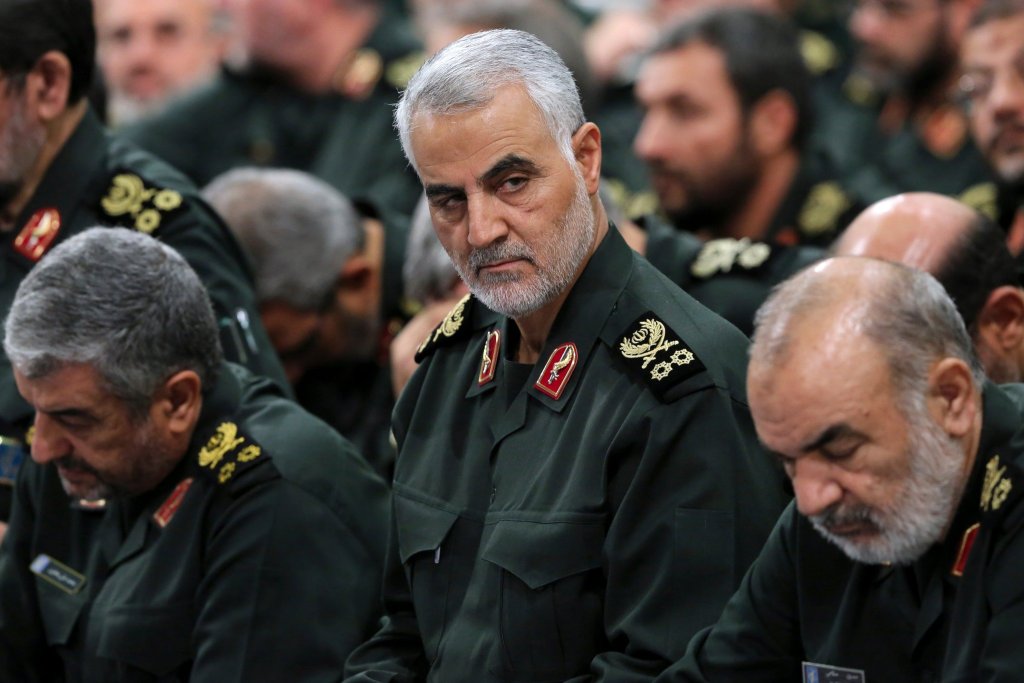عدول عماد باقی از لیبرالیسم اخلاقی
رضا بیدرانی
عمادالدین باقی، فعال حقوق بشر و روزنامهنگار منتقد جمهوری اسلامی، روز چهارشنبه هفته گذشته در واکنش به عکسی از کنچیتا وورست، خواننده و دگرباش جنسی مشهور اهل اتریش و مردی که همراه او بود، این عکس را «چندشآور» خواند.
واکنش نفرتآلود آقای باقی با واکنش انتقادی بسیاری از کاربران توئیتر مواجه شد و عماد باقی در توجیه کامنت خودش درباره عکس کنچیتا وورست و مرد همراهش، دو توئیت دیگر هم منتشر کرد و پس از آن حساب توئیتری آقای باقی معلق شد.
باقی در اولین دفاعیه توئیتریاش نوشت: «این هموفوبیا محصول آن یک کلمه من نیست محصول آن عکس عجیب است. چرا نسبت به هزاران تصویر دیگر همین یک کلمه هم گفته نشد؟ آن تصویر یک زنگ خطر مسخ انسانیت است و یک مدافع حقوق بشر نمیتواند نسبت به مسخ انسانیت بیتفاوت باشد. ولی همین حتی یک کلمه هم تحمل نمیشود؟»
در واقع عماد باقی با اولین دفاعیهاش، تلویحا میخواست بگوید همجنسگرایی برایش چندشآور نیست و آنچه برایش چندشآور بوده "مردی ریشدار با لباس زنانه" بوده است. اما او با پیش کشیدن مفهوم "مسخ انسانیت"، خودش را در معرض انبوهی از گفتارهای انتقادی محتمل قرار میدهد.
اگر مردی ریشدار با لباس زنانه مصداق مسخ انسانیت باشد، مردی هم که طالب رابطه با همجنس خودش است و به لحاظ جنسی نیز passive است، رفتار جنسیاش قاعدتا باید مصداق "مسخ انسانیت" باشد؛ چراکه اگر "انسان" و "انسانیت" تعاریفی کلاسیک داشته باشند، مفاهیم "مرد" و "مردانگی" نیز واجد چنین تعریفی هستند. بنابراین مرد همجنسگرای passive نیز، چه با ریش چه بی ریش، چه با لباس زنانه چه بی لباس زنانه، مصداق "مسخ مردانگی" و به تبع آن مصداق "مسخ انسانیت" است. بنابراین عقبنشینی ظریف عمادالدین باقی در اولین دفاعیهاش، منطقا بیفایده است؛ چراکه او در این عقبنشینی دلیلی اقامه کرده (مسخ انسانیت) که دامن سایر همجنسگرایان را نیز میگیرد.
در عالم واقع نیز بسیاری از مخالفان کلاسیک همجنسگرایی، رفتارهای جنسی همجنسگرایان را خلاف "طبع مردانه" و "طبع زنانه" انسانها میدانند و به همین دلیل همجنسگرایی را نوعی "انحراف از انسانیت" و مصداق "خیانت افراد به جنسیت خدادای یا طبیعی خودشان" میدانند.
وانگهی باید از آقای باقی پرسید که آیا وظیفه "فعال حقوق بشر" تعیین مرزها و "محدودۀ انسانیت" است یا دفاع از آدمهای گوشت و پوست و خونداری که عقل و احساس و عاطفه دارند و در مواجهه به وقایع زندگی خوشحال و ناراحت میشوند و میخندند و میگریند و به زبانی از زبانهای بشری حرف میزنند؟
اتفاقا به نظر میرسد فعالان حقوق بشر بیشتر باید دغدغه دفاع از حقوق افرادی را داشته باشند که نفس وجودشان مصداق "مسخ انسانیت" قلمداد میشود و همواره در معرض انواع و اقسام تهدیدها از سوی دیگرانند.
کسی که همه چیزش "بهقاعده" است، آبرو و امنیت و حق حیاتش چندان در معرض تهدید سایر انسانها نیست اما کسی که رفتارش از جهاتی بهقاعده نیست، معمولا در معرض چنین تهدیداتی قرار دارد. ولی همۀ سخن بر سر همین "قاعده" است. آنچه قاعده یا ملاک یا معیار محسوب میشود، از کجا میآید؟ از دین یا اخلاق یا ایدئولوژی؟ از هر جا که بیاید، اصل اساسی برای یک اومانیست این است که انسان مهمتر از امور اعتباری است.
دین و اخلاق و ایدئولوژی، منظومهای از باورهای گوناگوناند که بسیاری از این باورها اموری اعتباریاند. مراد از "انسان" نیز همین موجود دوپا است که به زبانی از زبانهای آدمیزادی سخن میگوید. اگر قرار باشد تعریف انسان را هم از ادیان یا مکاتب اخلاقی یا ایدئولوژیهای گوناگون بگیریم، بسیاری از ما موجودات دوپایی که به فارسی یا انگلیسی یا فرانسوی و عربی و ... حرف میزنیم، از دایرۀ مصادیق "انسان" خارج میشویم و عدممان به ز وجود قلمداد خواهد شد. اگر هم در اثر سختگیری و مجازات افرادِ بهقاعده از هستی ساقط شویم، سرکوبگرانی که دغدغه مسخ نشدن انسانیت را دارند، در وصفمان حداکثر این شعر را میخوانند: آمد مگسی پدید و شد ناپیدا !
در واقع استدلال عمادالدین باقی اگر تا منتهای منطقیاش دنبال شود، جز به همین جا ختم نخواهد شد که مصادیق "مسخ انسانیت" باید مثل مگسی مزاحم از صفحۀ روزگار حذف شوند.
اگر آقای باقی میگفت مردی ریشدار با لباس زنانه، از منظری زیباییشناسانه چنگی به دل نمیزند، میشد حرفش را نشنیده گرفت و قصه را به "تفاوت سلیقه" فروکاست. ولی وقتی بحث "مسخ انسانیت" مطرح میشود، بدیهی است که منطقی اقامه شده است که اگر تا منتها دنبال شود، کار بالا میگیرد!
استفاده از واژه "چندشآور" آشکارا مصداق "نفرتپراکنی" است و وقتی که این نفرتپراکنی علیه اقلیتهای جنسی اعمال میشود، مصداق بارز نقض ارزشهای دموکراتیک و زمینهسازیِ ولو ناخواسته برای طرد و سرکوب "گروه انسانی مورد نفرت" است.
عمادالدین باقی در دومین دفاعیهاش نیز عذری بدتر از گناه آورده و همجنسگرایان را با قاتلان مقایسه کرده و نوشته است: «عمل قتل عمل شنیعی است و ما وقتی از حقوق قاتل و زندانی مجرم دفاع میکنیم، به معنای دفاع از عمل او نیست. از نظر من عمل ازدواج دو همجنس چندشآور است و این، غیر از دفاع از حقوق آنهاست. اگر من به آن تصویر نام چندشآور دادم، هیچ ربطی به نقض حقوق آنان ندارد.»
این دفاعیه باقی نیز عین خروج از لیبرالیسم اخلاقی است. باقی از واژه "شنیع" در توصیف عمل قتل استفاده کرده است. اما نکته این است که "قتل" عملی جنایتکارانه است در حالی که واژه "شنیع" عمدتا دلالت زیباییشناسانه دارد (یا دست کم چنین دلالتی هم دارد). شنیع اگرچه به معنای "بد و قبیح" نیز به کار میرود، ولی معنای "زشت و ناپسند" هم دارد. گنجاندن دو عمل "قتل" و "ازدواج دو همجنس" در زیر چتر واژه "َشنیع"، نوعی تلاش زیرکانه برای فرار از تنگنا است. ازدواج دو همجسنگرا حتی اگر چندشآور هم باشد، جنایتکارانه نیست.
وانگهی عمادالدین باقی میگوید حقوق فرد قاتل یا همجنسگرا نباید نقض شود. اما تمام سخن بر سر این است که قاتل حق ارتکاب جنایت ندارد ولی همجنسگرا حق رفتار جنسی همجنسگرایانه و حق ازدواج با همجنس خودش را دارد. دفاع فعال حقوق بشر از "قاتل" دفاع از حق او در ارتکاب قتل نیست (مگر قتل در مقام دفاع از خود). فعال حقوق بشر از سایر حقوق قاتل دفاع میکند (برخورداری از وکیل و دادرسی عادلانه و درخواست تجدید نظر در حکم صادره و ...) ولی در مساله همجنسگرایان، فعال حقوق بشر باید از حق همجنسگرایی و حق ازدواج همجنسگرایان (یعنی چیزی که از نظر آقای باقی چندشآور است) دفاع کند.
بنابراین باید از جناب باقی پرسید که چندشآور از نظر شما دقیقا چه معنایی دارد؟ ظاهرا منظور باقی از "چندشآور" امر نارواست. باقی طبیعتا آدمکشی را ناروا میداند و چنین حقی برای کسی قائل نیست. اما او صریحا نمیگوید که آیا ازدواج دو همجنس هم مثل آدمکشی نارواست یا نه؟ اگر نارواست، پس عماد باقی نمیتواند از این عمل بهمثابه یک "حق" دفاع کند. اگر ناروا نیست، پس چرا یک فعال حقوق بشر باید استفاده همجنسگرایان از حقوق خودشان را چندشآور بخواند؟
اما واقعیت این است که عماد باقی ازدواج همجنسگرایان را ناروا میداند؛ چراکه او واژه "چندشآور" را در مواجهه با چیزی به کار برده که آن را "مسخ انسانیت" میداند. بنابراین او نمیتواند بگوید علیرغم چندشآور دانستن ازدواج همجنسگرایان، از حق ازدواج آنان دفاع میکند.
ولی چرا عمادالدین باقی به چنین ورطهای افتاد؟ پیش از پاسخ دادن به این سوال، باید این نکته را یادآوری کنیم که یکی از مدلولهای لیبرالیسم اخلاقی، به رسمیتشناختن افعال غیراخلاقی از سوی شهروندان است؛ مادامی که آن افعال به کسی آسیب نزنند یا زمینه آسیبرساندن به دیگران را فراهم نکنند. این خط قرمز، منعی اومانیستی است که صرفا انسان را پاس میدارد نه دین یا ایدئولوژی خاصی و نه حتی مکاتب و نظامهای اخلاقی را. در نتیجه دایره "افعال مجاز" در لیبرالیسم اخلاقی، بسیار وسیعتر از دایره افعال مجاز در نظامهای اخلاقی ادیان و ایدئولوژیهای غیر لیبرال است و اصولا لیبرالیسم دربارۀ بسیاری از افعالی که از سوی علمای اخلاق مشمول حسن و قبح اخلاقی میشوند، داوری خاصی ندارد و در قبال آن افعال، مادامی که به دیگران آسیب نزنند، روادار است.
اما دلیل این رواداری چیست؟ دلیلش را باید در لیبرالیسم معرفتی جستجو کرد. مطابق مبانی فکری لیبرالیسم، یقین امر نایابی است چراکه ذهن انسان گرفتار خطای سیستماتیک است. بنابراین اگر عدهای به یقین رسیدند، فلان رای نادرست است و فلان فعل ناروا، نمیتوان به صرف یقین آنها آزادی بیان و آزادی عمل دیگران را منع کرد. ملاک ما در منع آزادی بیان و آزادی عمل، همان آسیب نزدن به آدمهای گوشت و پوست و خوندار است و بس. و دقیقا به همین دلیل است که لیبرالیسم معرفتی به لیبرالیسم اخلاقی منتهی میشود.
در طول تاریخ بشر، دین و ایدئولوژی و اخلاق سه عامل اساسی سرکوب انسانها بودهاند. ایدئولوژی که پدیده متاخری است اما دین و اخلاق سابقهای طولانی در سرکوب بشر دارند. ولی در این میان عمدتا دین و ایدئولوژی بدنام شدهاند. اما واقعیت این است که در طول تاریخ، بسیاری از انسانها نه به دلیل نفی این دین یا آن ایدئولوژی بلکه به دلیل ارتکاب اعمالی که غیر اخلاقی قلمداد میشدند، مجازات شدهاند. اگرچه هر دینی نظام اخلاقی خاص خودش را دارد، ولی در جوامع غیر دینی نیز افراد بسیاری به دلیل نقض "اخلاقیات" آن جامعه سرکوب شدهاند.
اما به قول امیل دورکیم "انحرافات امروز اخلاقیات فردا هستند." حتی اگر ممنوعیتهای پرشمار جوامع دینی دوران قرون وسطی را نادیده بگیریم، چه بسیار اعمالی که تا همین یکی دو قرن پیش در اروپای مدرن ممنوع بودند و مرتکبین آنها بدنام و بیآبرو و طرد میشدند ولی امروزه از دایره امور ممنوع خارج شدهاند. همجنسگرایی یک نمونه بارز همین موارد است. حتی اگر هنوز هم اکثریت مردم در یک جامعه لیبرال همجنسگرایی را غیراخلاقی بدانند، این نکته برای آنها جا افتاده است که باور آنها به غیراخلاقی بودن این عمل، لزوما دال بر غیراخلاقی بودن این عمل نیست؛ بنابراین باید با دگرباشان از درِ مدارا درآیند و حقوق برابر آنها را به رسمیت بشناسند و حقیقتا پذیرای حضور آنها در جامعه باشند.
عمادالدین باقی وقتی که ازدواج دو همجنس را چندشآور قلمداد میکند، در واقع مشغول نفرتپراکنی علیه اقلیتهای جنسی است. او حتی اگر یقین داشته باشد ازدواج همجنسگرایان امری نارواست، به حکم لیبرالیسم اخلاقی باید از نفرتپراکنی علیه کسانی که آنها را "غیر" میداند، پرهیز کند؛ چراکه دموکراسی بدون "غیرپذیری" محقق نخواهد شد.
استفاده از برچسب "مسخ انسانیت" در توصیف همجنسگرایی، فقط به کار سرکوب عدهای از انسانها میآید و بس. در یونان باستان نیز بردهها انسان قلمداد نمیشدند و به همین دلیل در دموکراسی آتنی حق رای نداشتند. کسی که وجودش مصداق مسخ انسانیت است، لاجرم از حق مشارکت سیاسی و مدنی هم باید محروم شود. چنین فردی حق ندارد سیاستمدار یا معلم یا پرستار و ... شود. در واقع اگر نیک بنگریم، دفاع عمادالدین باقی از اظهار بیزاریاش نسبت به ازدواج دو همجنسگرا، پیامدهای نامقبول پرشماری دارد.
آقای باقی باید توجه داشته باشد که زنان و کارگران در اکثر جوامع دموکراتیک قرن نوزدهم، با اینکه مصداق مسخ انسانیت قلمداد نمیشدند، از حق رای دادن محروم بودند. غرض اینکه، اگر کسی را انسان ممسوخ هم ندانیم، هیچ بعید نیست که پارهای از مهمترین حقوق انسانی او تامین نشده باشد؛ چه رسد به اینکه او را انسان ممسوخ بدانیم.
اظهار بیزاری و نفرتپراکنی عمادالدین باقی نسبت به همجنسگرایان، ولو که از سر عدم تامل و التفات بوده باشد، این درس را برای یکایک ما در بر دارد که چه بسا کسی فعال حقوق بشر باشد و در این زمینه جوایز قابل توجهی هم کسب کرده باشد، ولی ذهنیتش هنوز به قدر کافی دموکراتیک نشده باشد. دموکراتیزاسیون فرایندی بسطیابنده است و تا اعماق ذهن و زبان و جهان هر انسانی باید پیش برود؛ چراکه انصاف حاقّ دموکراسی است و "وضعیت دموکراتیک" همیشه منصفانهتر از "وضعیت غیر دموکراتیک" است. اگر آقای باقی با تمایلات همجنسگرایانه میزیست، به راحتی این مدعا را تایید میکرد و بخش قابل توجهی از بنی آدم را از دایره آدمیت خارج نمیکرد.
لازمه انصاف "نگریستن از چشم دیگری" است. برای اینکه برچسب "انسان ممسوخ" را از پیشانی زنان و مردان همجنسگرا برداریم، لازم نیست حتما همجنسگرا باشیم. فقط کافی است کمی از دگماتیسم و "غیرستیزی" فاصله بگیریم و به "غیرپذیری" ناشی از "اومانیسم راستین" خوشامد بگوییم و انسان را عملا بالاتر از دین و ایدئولوژی و اخلاق بنشانیم و فراموش نکنیم که نباید "چماق اخلاق" را بر سر هیچ "انسان بیآزاری" بکوبیم.
آنچه امروز غیراخلاقی قلمداد میشود، فردا ممکن است اخلاقی قلمداد شود. حتی اگر چنین هم نشود، مادامی که اعمال غیر اخلاقی گروهی از افراد مخل زندگی دیگران نباشند، با مرتکبین آنها باید مدارا کرد. این آموزۀ اساسی لیبرالیسم اخلاقی است و کسی که از لیبرالهای جهان غرب جوایز اخلاقی و سیاسی میگیرد، نباید این اصل اساسی را فراموش کند.
مطلب فوق صرفا نظر نگارنده بوده،و الزاما بیان کننده دیدگاه هجا نمی تواند باشد

